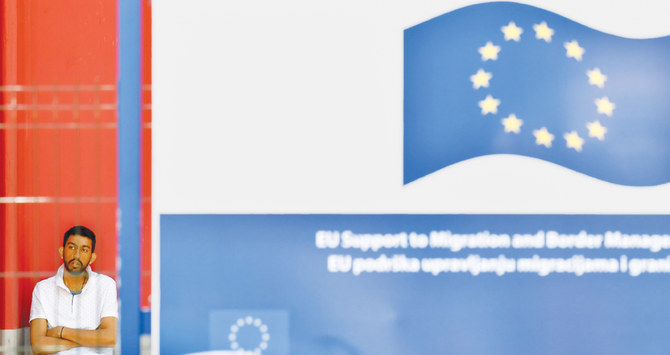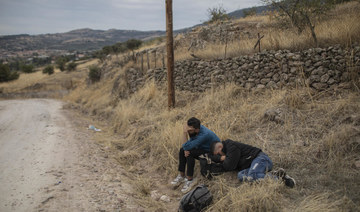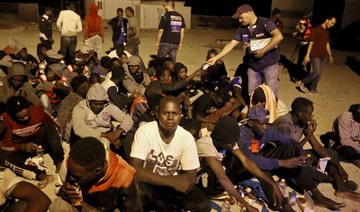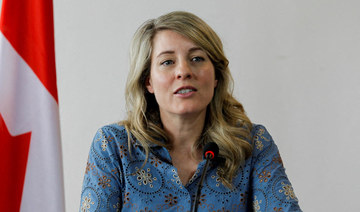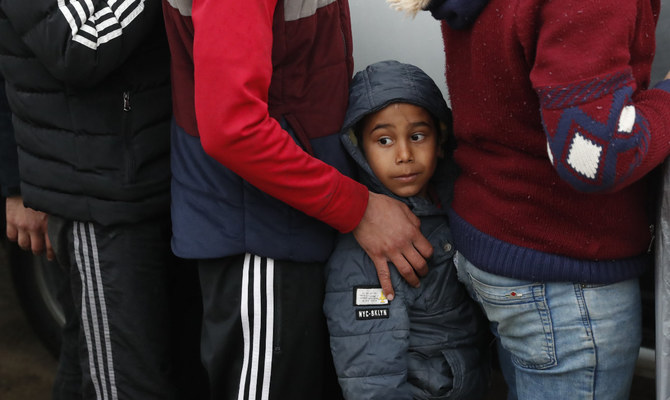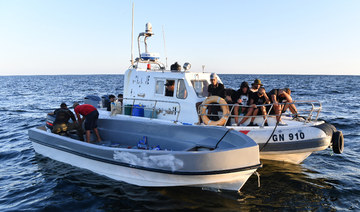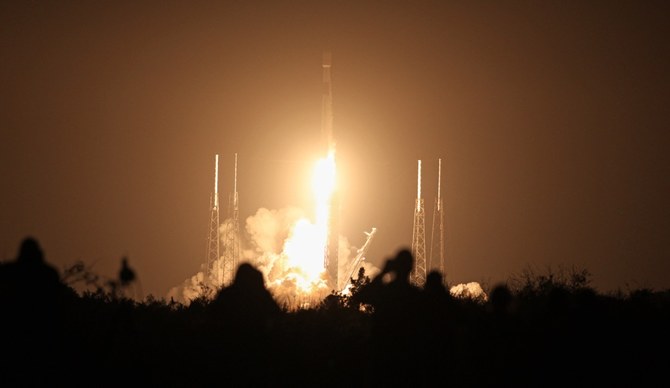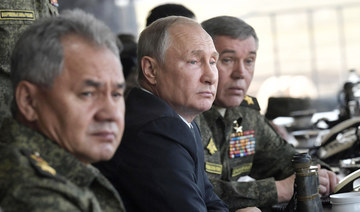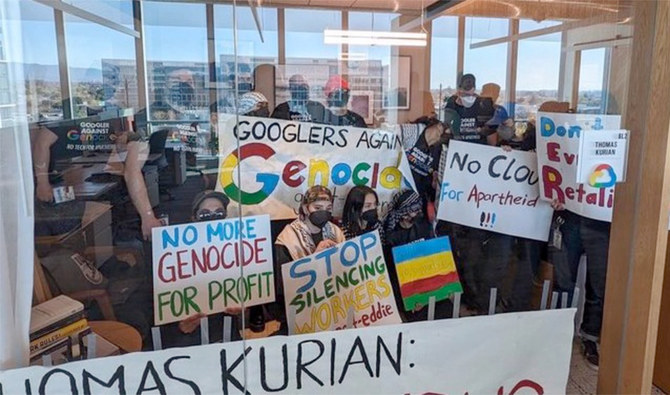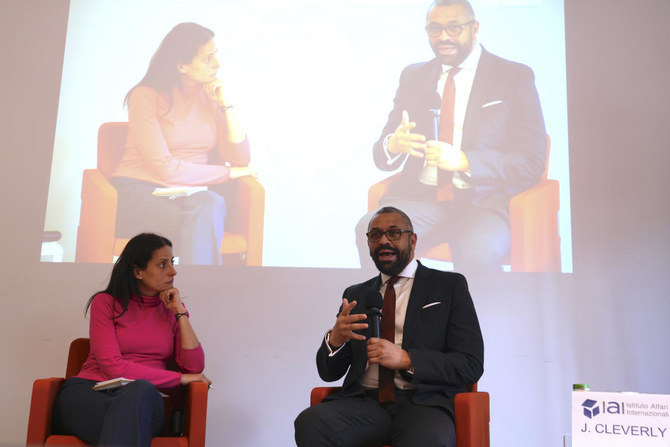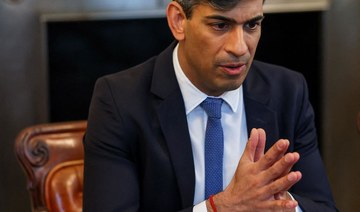ABU DHABI: After months of official denials, Croatia’s leader finally admitted in an interview with Swiss television this year that her government had been pushing undocumented immigrants across the border into Bosnia.
President Kolinda Grabar-Kitarovic said that a small amount of violence and a “little bit of force” was to be expected when police handle irregular migrants.
The truth is that the use of force by Croatian security officers has become routine since the 2016 border closures along the Western Balkan route, which left thousands of asylum-seekers stranded and looking for new routes to Western Europe.
The daunting problems migrants and refugees face on that route might make the issue of police violence along the Croatia-Bosnia border seem relatively minor. But such comparisons can obscure neither the grim reality of the situation nor the EU’s failure to match its moral rhetoric with action.
Bosnia is emerging as a new transit station for those trying to reach Croatia and continue the perilous journey to the EU’s Schengen area of free movement.
Croatia has a bilateral agreement with Bosnia that allows it to send back irregular migrants coming from across the border. Given that the agreement is not applicable to asylum-seekers, there are numerous accounts of the Croatian border police preventing people from applying for asylum, thus necessitating their illegal movement into Bosnia.
People who try to cut through Croatia to reach the Schengen zone are regarded by the country as “illegal migrants” and frequently subjected to collective expulsion, torture, violence and intimidation at the Croatia-Bosnia border.
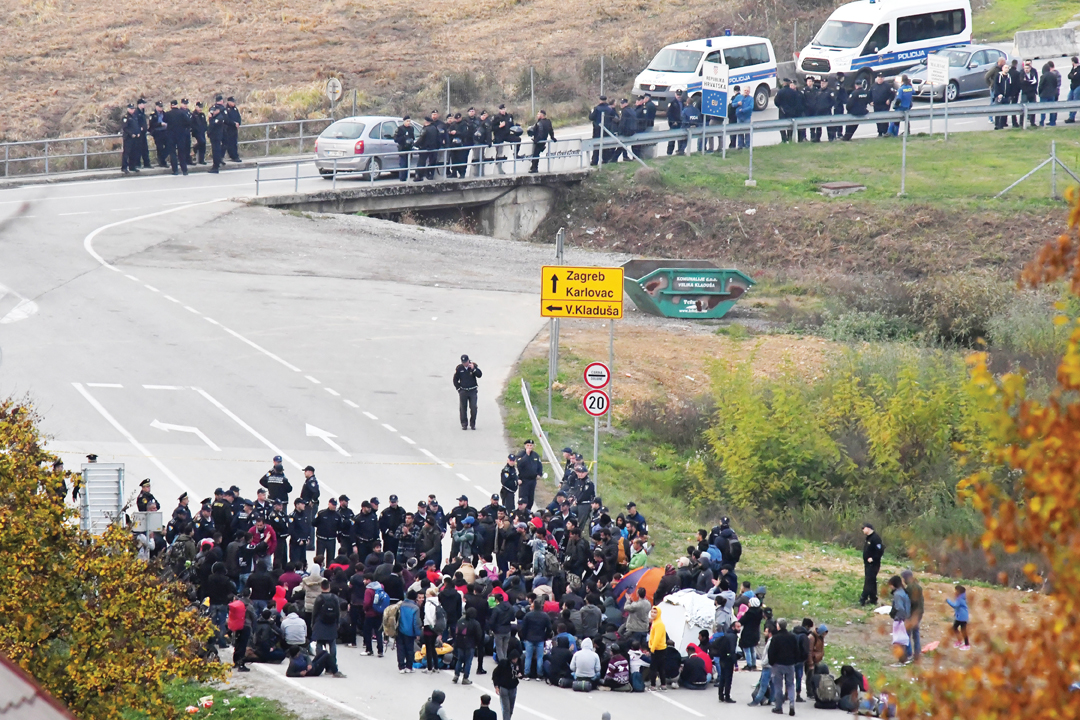
Migrants near a border crossing between Bosnia and Croatia. Asylum-seekers using the route have been subjected to violent attacks and intimidation. (AFP)
Since July 2018, the European Border Agency, Frontex, has had a presence on the Croatia-Bosnia border through a Multipurpose Aerial Surveillance system, which includes daily aerial patrols.
Detecting human-rights violations and expulsion of migrants and asylum-seekers is one of the priorities of the Frontex operation. However, its mission along the Croatia-Bosnia border has proved ineffectual in putting an end to the violence directed against migrants and asylum-seekers, according to Human Rights Watch (HRW).
On the Bosnian side, the European Commission says that 2018 was marked by a sharp increase in migrants and asylum-seekers in the country, with the number approaching 6,000.
Officially, Bosnia has only one reception center for asylum-seekers with a capacity for 156 people. Many other ad hoc centers across northern Bosnia, managed by the International Organization for Migration (IOM) and the UN refugee agency, are in a state of dilapidation.
An estimated 5,500 women, men and children are stranded in two Bosnian towns near the Croatian border, Bihac and Velika Kladusa, living in defunct factories that lack even basic amenities.
The influx of migrants and refugees has proved problematic for Bosnia, a country which has yet to recover from the war that accompanied the break-up of Yugoslavia in the early 1990s. Conditions in the camps are unhygienic at best.
“We don’t have enough food to feed the whole family, especially the children,” one Afghan mother told Amnesty International. “They are always hungry.”
INNUMBERS
2.4 MILLION - Immigrants who entered EU from non-EU countries in 2017.
2.5,000 - Migrants pushed by Croatia into Bosnia in 2018 without their cases being processed.
€9 MILLION - Earmarked by Europe for migrant crisis in Bosnia since 2018.
25,000 - Migrants and refugees registered by Bosnia on its soil in 2018.
3.5,000 - Migrants and refugees who stayed behind in Bosnia.
In the course of 2018, Bosnia witnessed a sharp increase in the number of migrants and refugees entering the country — from 237 recorded in January to 2,557 in May and 2,493 in July 2018.
According to the Bosnian border police, the country of origin of most migrants and refugees is generally self-declared since most lack identification documents. IOM data shows the main countries of origin to be Pakistan (31 percent), Syria (17 percent), Afghanistan (13 percent), Iran (12 percent) and Iraq (9 percent).
The influx has challenged the human and financial resources of the government agencies concerned, according to an early 2019 OSCE report on the situation in Bosnia.
Faced with a growing crisis in its northwestern region, Bosnian authorities have moved hundreds of migrants and asylum-seekers to an isolated forest camp despite the threat from land mines and fires, as well as other health risks.
The UN has refused to operate at the camp, citing concerns about its close proximity to minefields and describing its location on top of a former landfill site as “unsuitable for human habitation.”
The precarious situation of migrants in Bosnia adds to the troubles of those who have been forcibly and illegally returned by the Croatian police, further complicating the crisis.
“We don’t go into the city center because we’re scared that the police will catch us,” 23-year-old Sufyan Al-Sheikh Ahmad, from Syria, told the New Humanitarian, a news agency focused on human stories. “You should see how we were when we lived in Turkey — I looked nothing like this.
“The circumstances here are very hard. Last time, we walked for six days in Croatia and reached Slovenia, but the Slovenian police caught us after two days. They handed us over to Croatian police, who took our money and bag, and broke our telephones. They took us to the border and we had to walk about 30 km to Bihac. That was the fifth attempt.”
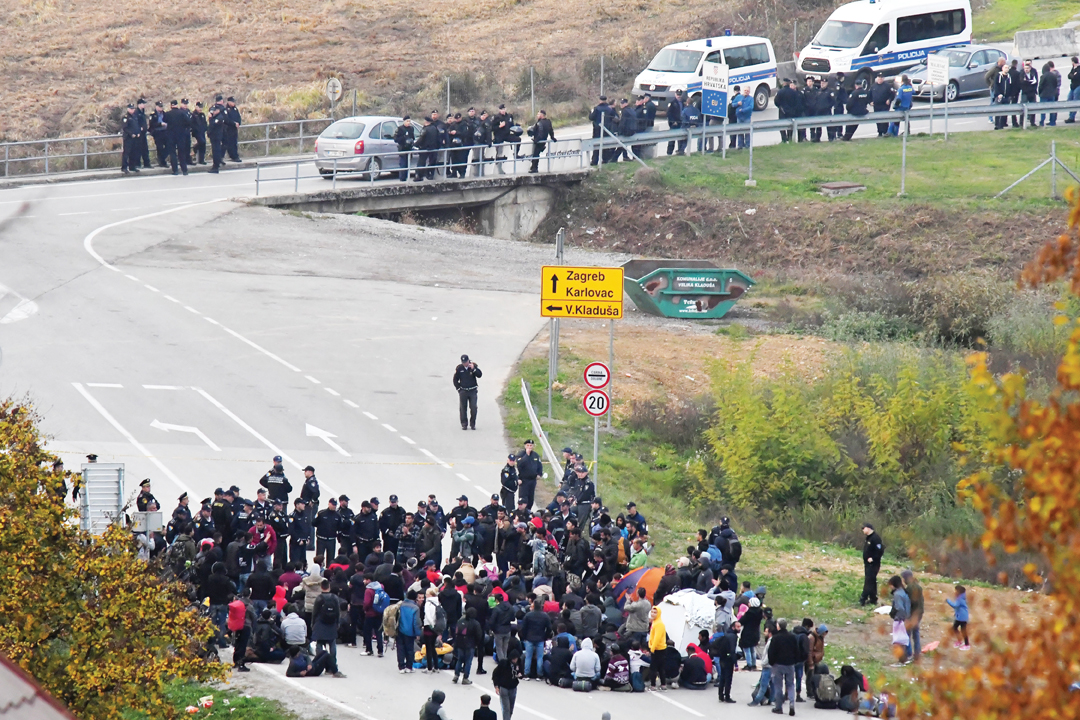
A migrant woman takes shelter from the rain at the entrance of Sarajevo’s railway station in June, 2018. (AFP)
After extensive on-the-ground research, HRW communicated its findings to the Croatian Interior Ministry in December 2018. The minister, however, denied all allegations of expulsion and violence. In a meeting this year with Terezija Gras, a top ministry official, HRW was told that no expulsions were taking place, that all returns to Bosnia were being conducted in accordance with Croatian and EU laws, and that the HRW evidence was based on fabricated stories.
In August 2018, the UN refugee agency reported violence, theft and multiple cases of forced return by Croatian police. Subsequently, the Council of Europe Commissioner for Human Rights called on the Croatian government to investigate all case of forced return, torture and violence.
“The European Commission needs to protect EU law and fundamental rights at external borders by opening infringement proceedings against Croatia and calling on authorities to investigate alleged abuse and provide fair and efficient access to asylum,” Lydia Gall, the HRW investigator for the Balkans and Eastern Europe, said.
Gall added: “While the EU has dedicated more than €9 million for humanitarian aid to migrants in Bosnia, such an action does not justify ignoring the violence being done to migrants on the Croatian/Bosnian border.”
Amnesty International in March 2019 echoed similar concerns, accusing European governments of being complicit in the “systematic, unlawful and frequently violent returns and collective expulsions” of thousands of asylum-seekers to squalid and unsafe refugee camps in Bosnia.
Yaran Y., a 19-year-old from Iraq, was carrying his disabled 14-year- old sister, Dilva, when they were detained along with at least five others at night in the forest.
The Iraqi said he told police officers that he wanted asylum for his sister, but they just laughed. “They told us to go to Brazil and ask for asylum there,” he told HRW.
An HRW report was blunt: “By prioritizing border control over compliance with international law, European governments are not just turning a blind eye to vicious assaults by the Croatian police, but also funding their activities.”
Back then, the forced return of migrants and asylum-seekers was contrary to the EU asylum law, the EU Charter of Fundamental Rights, and the 1951 Refugee Convention. Three years on, it still is, yet sadly the political will among European governments to remedy the situation is even more lacking.



